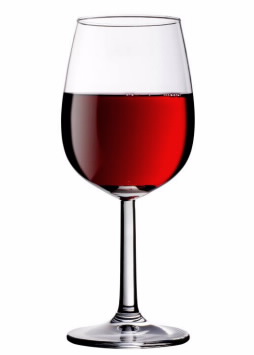EMBARGOED FOR RELEASE | August 19, 2012
Red wine compound could help seniors walk away from mobility problems
Note to journalists: Please report that this research was presented at a meeting of the American Chemical Society.
PHILADELPHIA, Aug. 19, 2012 — In a stride toward better health in later life, scientists reported today that resveratrol, the so-called “miracle molecule” found in red wine, might help improve mobility and prevent life-threatening falls among older people. The finding, believed to be the first of its kind, was presented today to some 14,000 scientists and others gathered at the 244th National Meeting & Exposition of the American Chemical Society, the world’s largest scientific society.
The researchers say this report — based on studies of laboratory mice — could lead to the development of natural products designed to help older Americans live safer and more productive lives.
Media Contact
During Aug. 17-23 the contacts can be reached at 215-418-2086.
Michael Bernstein
202-872-6042
m_bernstein@acs.org
Michael Woods
202-872-6293
m_woods@acs.org
“Our study suggests that a natural compound like resveratrol, which can be obtained either through dietary supplementation or diet itself, could actually decrease some of the motor deficiencies that are seen in our aging population,” said Jane E. Cavanaugh, Ph.D., leader of the research team. “And that would, therefore, increase an aging person’s quality of life and decrease their risk of hospitalization due to slips and falls.”
Cavanaugh notes that falls become more common with advancing age and are the leading cause of injury-related death among people older than 65. In addition, about one in three older Americans have difficulty with balance or walking, according to the American Geriatrics Society.
These mobility problems are particularly common among older people who have Parkinson’s disease and other age-related neurological disorders, Cavanagh said. She is with Duquesne University in Pittsburgh. However, while drugs can help alleviate some of the motor-related problems in Parkinson’s disease, Cavanaugh points out that there are no comparable treatments for balance and walking problems in otherwise healthy older adults. She and her colleagues set out to rectify that, focusing on natural chemical compounds such as resveratrol.
Previous studies have shown that resveratrol — an antioxidant found in red wine and dark-skinned fruits — might help reduce inflammation, lower cholesterol, slash the risk of heart disease and certain cancers and, perhaps, have some anti-aging effects in the body. Resveratrol is available as a dietary supplement and is abundant in foods such as red grapes, blueberries and nuts.
To determine its effects on balance and mobility, Cavanaugh, Erika N. Allen and colleagues fed young and old laboratory mice a diet containing resveratrol for eight weeks. They periodically tested the rodents’ ability to navigate a steel mesh balance beam, counting the number of times that each mouse took a misstep. Initially, the older mice had more difficulty maneuvering on the obstacle. But by week four, the older mice made far fewer missteps and were on par with the young mice.
While it is unclear how resveratrol works in the body, Cavanagh’s team found some clues. In laboratory experiments, they exposed neural cells to a neurotransmitter called dopamine, which in large amounts can induce cell death. However, neurons treated with resveratrol before being exposed to dopamine survived. On closer examination, the researchers found that resveratrol mitigated the damage done by oxygen free radicals, generated by the breakdown of the dopamine, and activated protein signaling pathways that appeared to promote cell survival.
Although she is encouraged by the results, Cavanaugh notes that resveratrol does have some drawbacks. For instance, it is poorly absorbed by the body. In fact, she calculates that a 150-pound person would have to drink almost 700 4-ounce glasses of red wine a day to absorb enough resveratrol to get any beneficial effects. That’s why she and her colleagues are investigating similar man-made compounds that mimic the effects of resveratrol and might be more bioavailable to the body. They’re also trying to determine how much resveratrol actually enters the brain.
Nevertheless, the researchers suspect that even if the effects of resveratrol in the brain are minute, this small margin could potentially be enough to help older people remain steady on their feet and avoid taking serious tumbles.
To automatically receive news releases from the American Chemical Society contact newsroom@acs.org.
###


